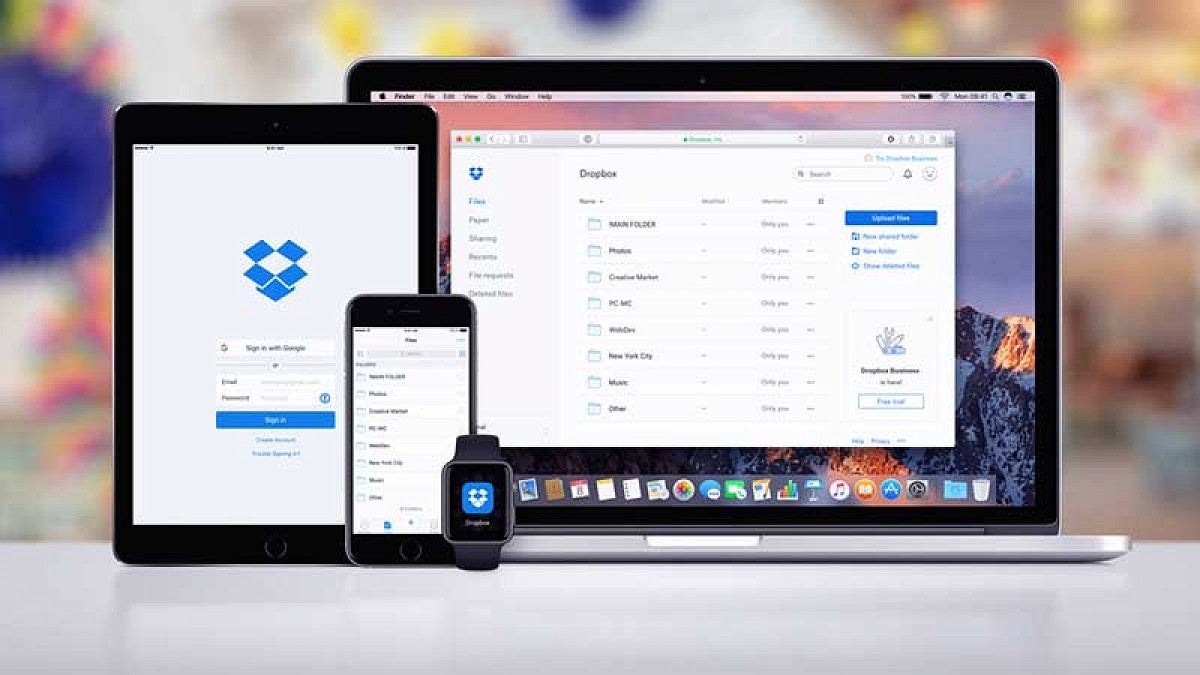The University of Oregon is extending its Dropbox service until March 2026.
Two units — Information Services and the Office of the Vice President for Research and Innovation — are funding a one-year extension of the UO Dropbox contract under the existing terms. That provides a 17-month window to transition to alternative storage options that offer greater long-term stability.
“In the next few months, we plan to provide timelines and specific guidance about your options for data storage,” said Abhijit Pandit, vice president and chief information officer.
The two units will form a project team to support a phased transition off the service.
Faculty and researchers won’t have to move data out of Dropbox until a new research-specific storage service is ready for use. Students and staff using Dropbox for non-research purposes may be asked to move their files sooner to existing UO storage services, such as Microsoft OneDrive or SharePoint.
“The research office takes very seriously the importance of data confidentiality, accessibility and longevity. To that end, we’re working on a new storage solution for research and scholarship,” said Anshuman “AR” Razdan, vice president for research and innovation. “It is our goal to meet the diverse needs of faculty and researchers, and to give enough time for them to smoothly transition their data into that service or other appropriate services.”
Pandit and Razdan acknowledged that data storage transitions can present challenges, especially for people who use storage in complex or unique ways. Their units plan to jointly host office hours this fall to hear from UO Dropbox users and collaborate with them on problem solving.
Grace period will continue but UO Dropbox nears capacity
More than three-quarters of UO’s Dropbox storage is already in use, putting tight constraints on usage for the remainder of the contract.
Given the eventual retirement of the service, new user onboarding into Dropbox will be limited.
The existing grace period for the Dropbox storage quota will continue for now. Dropbox users with more than 100 gigabytes of data may continue to receive automated notifications about their accounts being full, but the quota still isn't being enforced.
Evolving and diversifying the storage strategy
Information Services is in the process of developing a more diverse range of data storage offerings to meet the needs of the UO community, at equal or lower price points than comparable external services. Cornerstones include
- Microsoft OneDrive, SharePoint and Teams: These robust tools are already available as part of the UO Microsoft suite, financed by the communications and collaborative technologies funding model. They enable UO community members to collaborate with people here and elsewhere — even if collaborators don’t have their own Microsoft accounts. UO users can create SharePoint and Teams sites with up to 5 terabytes of storage per site. OneDrive offers 1 terabyte of storage per person (or 100 gigabytes for those with Microsoft A1 licenses).
- UO research data storage: A new type of data storage, currently in the planning stages, is expected to be ready in early 2025. The Office of the Vice President for Research and Innovation plans to partially subsidize this service, dedicated to research and scholarship. It will be a fee-based service, with a limited amount of free access.
- General-purpose UO storage:An existing fee-based, general-purpose storage service will be expanded this fall to accommodate more users. It is suitable for a wide range of data types, including audiovisual media.
- Archival storage: A fee-based archival cloud storage option is also in the works. One example of such a service is Glacier from Amazon Web Services.
“We’re evolving our storage strategy to better serve the university now and for years to come,” Pandit said. “We aim to provide a suite of storage options, with more stability than certain vendors will offer.”
Why not Dropbox?
The university faced an unpleasant surprise when it came time to renew the Dropbox contract in March. The company increased the cost of its unlimited storage by an exorbitant 70 percent, driving the UO into a contract with only 1 petabyte of total storage, with no guarantee of future cost containment.
“This is part of a larger trend we're seeing with technology contracts,” said Greg Shabram, chief procurement officer, in June. “Some vendors that entered the higher ed space during the pandemic have moved into extractive positions without a real, legitimate partnership to help the university meet its mission.”
That change prompted the UO decision to move away from Dropbox.
Anyone considering procuring Dropbox services independently should first consult the Information Security Office. Very few Dropbox plans provide sufficient security or compliance for high-risk or moderate-risk data.
Members of the UO community can continue participating in Dropbox-based collaborations hosted elsewhere as long as they meet data-security requirements.
Anyone with questions about Dropbox can submit a ticket at Dropbox support or contact the IT staff who support their unit or the Technology Service Desk. People with questions about research data storage should email Research Advanced Computing Services at racs@uoregon.edu.
More contact points are available on the Future of UO Data Storage webpage, along with a timeline.
—By Nancy Novitski, University Communications
Reminders about employee data-handling responsibilities
- UO employees are responsible for being aware of the sensitivity of the data they handle, for using approved storage locations that support that policy, and for following other controls associated with different classes of data. The Information Security Office can help identify secure and compliant solutions. (Some cybersecurity-related resources require a Duck ID login for access.)
- Before deleting files or other data, or moving them out of UO systems, employees should be aware of their recordkeeping responsibilities as explained in the short video Records and Our Shared Responsibilities from University Records Management.


